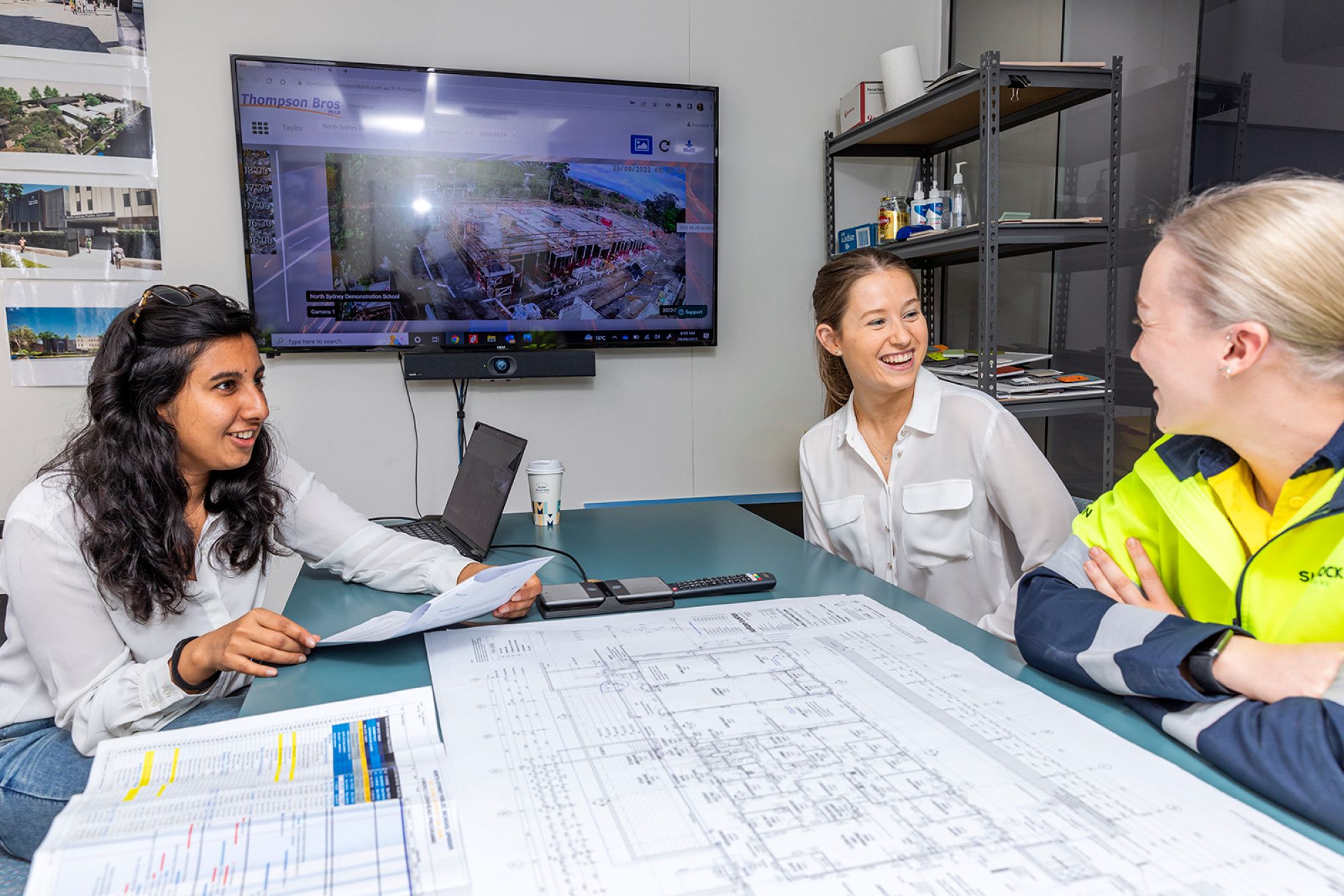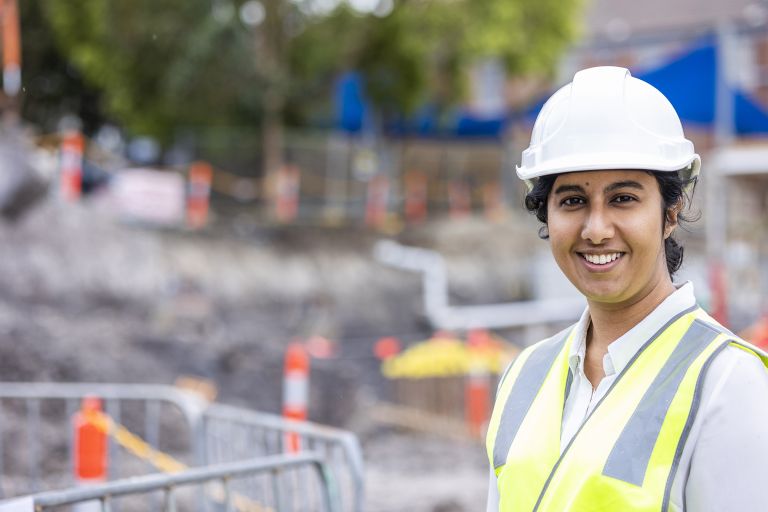About Tarini
- Qualifications
- Favourite school subjects
- First full-time job
- What sparked your interest in a construction career?
Bachelor of Design in Architecture at UTS and Master of Architecture.
Design and Technology.
My first full-time job was as a project coordinator at the University of Technology Sydney on their billion-dollar campus redevelopment master plan. When I graduated with my bachelor's degree in architecture, I couldn't find a job immediately and I ended up interviewing at UTS.
They needed someone for three weeks as a project coordinator doing administrative tasks on one of the projects and four years later, I was still there. It’s a terrific example of a casual job that became much more permanent.
I loved Design and Technology in high school and enjoy seeing interesting buildings and architecture. Every year, there’s the Sydney Open where buildings and spaces, typically off limits, are opened up to the public. I go to it every year! I never thought I'd be a Project Manager, but I love architecture and want to be around any job that involves it.
"You should join the construction industry because you can work with great people. Our industry is incredibly diverse, and there are many roles and opportunities, no matter your interest."
Can you tell us about your current job?
I’m a Senior Project Manager with Turner & Townsend. My job is to help clients design and deliver projects. Sometimes clients know what they're getting into, and other times, they don’t, and need help from someone like me who's got technical expertise on how to get a project from design through to delivery.
I bring together consultants to deliver a functional design that meets all the client's requirements and then manage builders and ensure they're building it as planned and that it is a great quality outcome for the client.
A normal day starts around 8:30am where onsite I meet with builders to understand what’s planned that day, how things on site are, and team morale. There are always matters to discuss such as program, design or cost.
Following the site visit, I head back to the office and get stuck into my work. I’ll review the designs, look at issues and see who to direct our queries to the architects, engineers and other consultants. We look at variations and extensions of time, review them, analyse them, see if the builder has a valid claim according to the contract, and draft responses to the client on our recommendations.
Then I'll meet with clients to update them on the overall project progress, or it could be something specific like playground equipment or landscape design.
When there’s a chance, I’ll grab a coffee and lunch.
I usually leave the office around 5:30pm. It's a full day!
Managing clients expectations and trying to get that message across on what is realistic and what can be done within a certain amount of time and budget is the hardest part of my job.
Our job comes with many challenges, and perseverance can take you far. Keep learning and developing. It’s the project manager’s role to keep the team together, so it’s crucial you have good people skills.
"The number of women in the construction industry is increasing and it’s making a big difference. Working in diverse teams with males and females and people from different cultures and backgrounds is more fun."
What’s changed, changing, or coming soon to make construction an industry-of-choice?
Females! The number of women in the construction industry is increasing and it’s making a big difference. Working in diverse teams with males and females and people from different cultures and backgrounds is more fun.
After high school, I studied for my undergraduate degree at UTS, followed by my part-time Master's Degree while working full-time at UTS. At this time, I learned how creative architects are, and I realised that it wasn’t the right job for me. Instead, I found that project management, where I can use my passion for architecture and be involved in the design and construction process, suited my skills of working with people and helping them achieve the building outcomes they want.
After four years, I decided it was time for a change and went to work for the consultancy MBB Group. I worked on public and high school projects with School Infrastructure New South Wales, which was gratifying for two years. After 6 years of working on education infrastructure projects, I wanted to get more diversity to help boost my construction career and came to work for Turner & Townsend.
In the three years that I’ve been working for Turner & Townsend, I started two projects from design and am now midway through construction.
Construction is an industry that gets significantly impacted by the economy, climate and seasons, among other things. You must be able to adapt and deal with change as it happens.
You should join the construction industry because you can work with great people. Our industry is incredibly diverse, and there are many roles and opportunities, no matter your interest. There are cost, design, technical, and so many other areas. Come and see what we have to offer you. You’ll impact and influence what your town, city, state and country look like from an infrastructure perspective.
Image

What do good construction employers do?
You’re in a good organisation if:
senior management shows you respect
work on projects in different sectors and sizes
you’re encouraged to get out of your comfort zone with the support you need to succeed.
